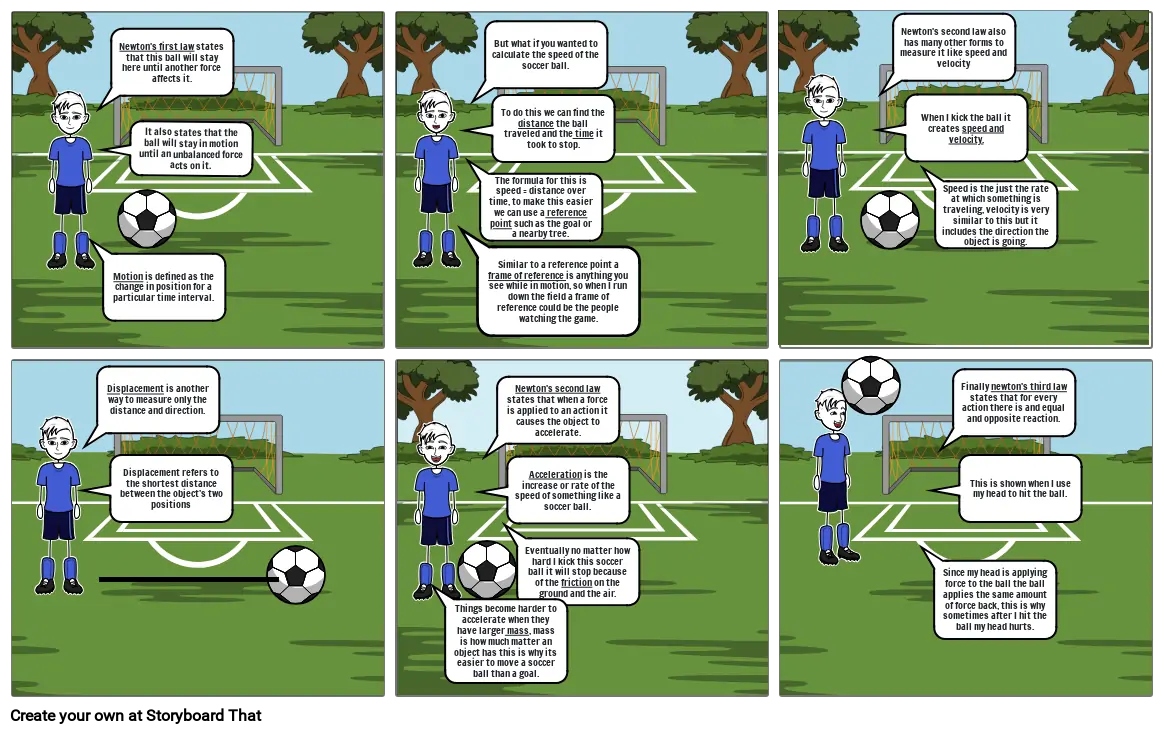motion

Storyboard Tekst
- Glide: 1
- Newton's first law states that this ball will stay here until another force affects it.
- It also states that the ball will stay in motion until an unbalanced force acts on it.
- Motion is defined as the change in position for a particular time interval.
- Glide: 2
- But what if you wanted to calculate the speed of the soccer ball.
- To do this we can find the distance the ball traveled and the time it took to stop.
- The formula for this is speed = distance over time, to make this easier we can use a reference point such as the goal or a nearby tree.
- Glide: 3
- Newton's second law also has many other forms to measure it like speed and velocity
- When I kick the ball it creates speed and velocity.
- Speed is the just the rate at which something is traveling, velocity is very similar to this but it includes the direction the object is going.
- Glide: 4
- Displacement is another way to measure only the distance and direction.
- Displacement refers to the shortest distance between the object’s two positions
- Glide: 5
- Similar to a reference point a frame of reference is anything you see while in motion, so when I run down the field a frame of reference could be the people watching the game.
- Newton's second law states that when a force is applied to an action it causes the object to accelerate.
- Acceleration is the increase or rate of the speed of something like a soccer ball.
- Eventually no matter how hard I kick this soccer ball it will stop because of the friction on the ground and the air.
- Things become harder to accelerate when they have larger mass, mass is how much matter an object has this is why its easier to move a soccer ball than a goal.
- Glide: 6
- Finally newton's third law states that for every action there is and equal and opposite reaction.
- This is shown when I use my head to hit the ball.
- Since my head is applying force to the ball the ball applies the same amount of force back, this is why sometimes after I hit the ball my head hurts.
Over 30 millioner Storyboards oprettet

